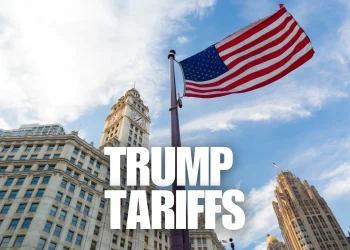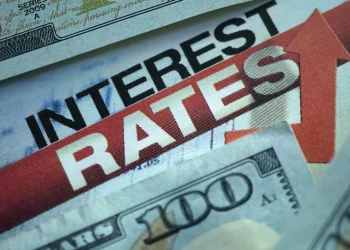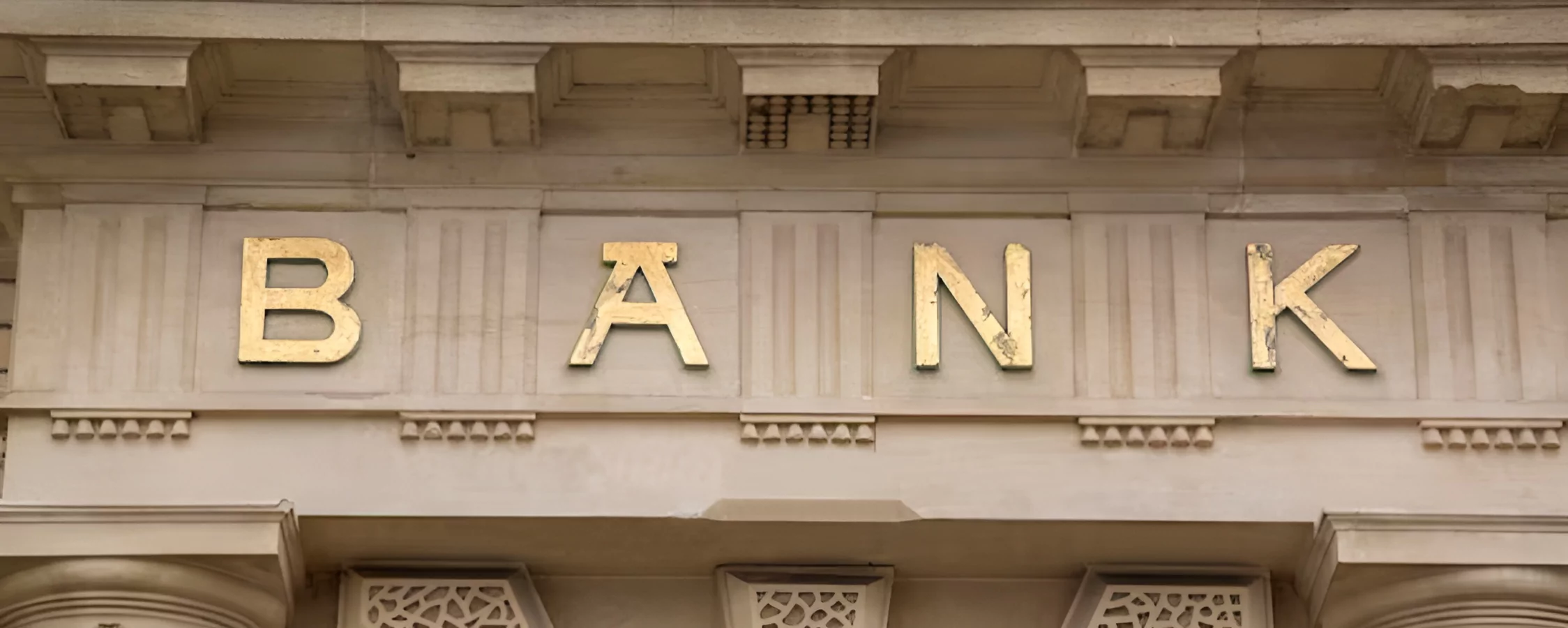In the fast-paced world of Forex trading, staying informed is crucial. This article dives deep into the concept of how news trading works, explaining its importance and providing practical strategies to leverage economic events for successful trades. Buckle up as we explore why news trading matters, how it works, and the best practices to master it.
What Is News Trading?
News trading involves making trades based on news releases and economic data. Traders anticipate market reactions to news events and position themselves to profit from resulting price movements. This approach hinges on the timely availability of news and the trader’s ability to interpret its impact swiftly. Imagine reading a news flash about a country’s employment rate plummeting and then executing a trade to capitalize on the anticipated currency drop. That’s news trading in a nutshell.
In Forex trading, news can significantly sway currency prices. Economic indicators, political events, and market developments provide valuable insights. Historical data underscores the substantial influence news has on Forex markets, impacting traders’ decisions and strategies. For example, back in 2016, the unexpected outcome of the Brexit referendum led to drastic changes in the value of the British pound, creating both challenges and opportunities for traders worldwide.
Types of News
- Economic Indicators: GDP, employment data, and inflation reports are critical. For instance, a higher-than-expected GDP growth rate can boost a currency’s value, signaling a robust economy. Take the U.S. Non-Farm Payroll report, a key economic indicator, as an example. A significant increase in job creation signals economic strength and can cause the U.S. dollar to surge.
- Political Events: Elections, policy changes, and geopolitical conflicts often cause market volatility. The 2016 Brexit vote is a prime example where political news led to significant market fluctuations. Similarly, major elections or policy shifts in large economies can lead to dramatic market reactions.
- Market Events: Mergers, acquisitions, and other corporate actions can move markets. For example, major mergers can enhance investor confidence and increase stock prices. Consider the effect of major tech companies merging; this often leads to increased market activity and shifts in stock prices.
- Unexpected Events: Natural disasters and other unforeseen events can cause abrupt market movements, requiring traders to stay alert. Events like the 2008 financial crisis or the COVID-19 pandemic had immediate and profound impacts on global markets, underlining the importance of being prepared for the unexpected.
News trading is all about timing. Markets react quickly to news, often within seconds. This immediate reaction can lead to increased volatility and liquidity, offering opportunities for quick gains. However, it also entails risks if the market moves unfavorably. Picture the swift market movements following an unexpected interest rate cut by a central bank—traders who react quickly can capitalize on these shifts, while those caught off guard might incur losses.
Key Economic Indicators to Watch
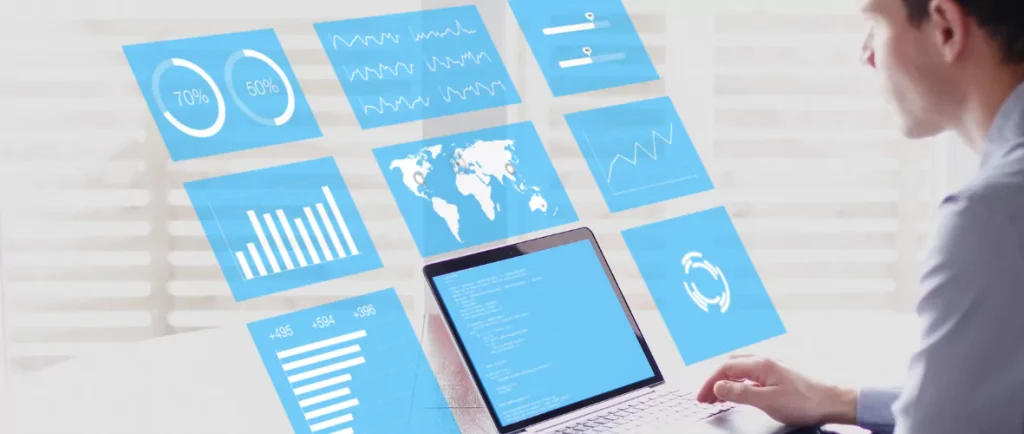
- GDP: An essential measure of economic health. High GDP growth usually strengthens a currency. When countries report higher GDP growth, their currencies tend to appreciate, as a stronger economy attracts foreign investment.
- Employment Reports: Data like the U.S. Non-Farm Payroll can cause significant market swings. A strong employment report typically leads to a stronger currency, as it reflects economic strength.
- Inflation Data: Central banks closely monitor inflation to guide monetary policy, influencing currency values. For instance, higher-than-expected inflation might prompt a central bank to raise interest rates, boosting the currency.
Strategies for News Trading
Pre-news Trading
Anticipate market movements by analyzing upcoming news events. Position yourself ahead of time based on expected outcomes. For instance, if strong GDP growth is anticipated, consider buying the currency ahead of the release. This proactive approach allows traders to take advantage of potential price movements before they happen.
Post-news Trading
React to news releases promptly. Monitoring live feeds and economic calendars helps you stay on top of breaking news. After the news, analyze market reactions to make informed trading decisions. For example, if a key economic report exceeds expectations, you might decide to buy the currency expecting it to rise, or sell it if the report is worse than anticipated.
During News Release
Keep an eye on live news feeds to catch breaking news and react quickly. This real-time monitoring enables traders to capitalize on swift market movements. For instance, during a central bank’s interest rate announcement, being tuned in can help you make immediate trading decisions based on the new information.
Scalping and Swing Trading
- Scalping: Involves quick, short-term trades to capitalize on small price movements. Ideal during high volatility periods post-news release. Scalpers aim to make numerous small profits throughout the day rather than holding positions for long periods.
- Swing Trading: Holding positions longer to benefit from sustained trends following news events. Swing traders look for opportunities to capitalize on price movements over several days or weeks, providing a different approach to news trading.
Examples of Successful News Trades
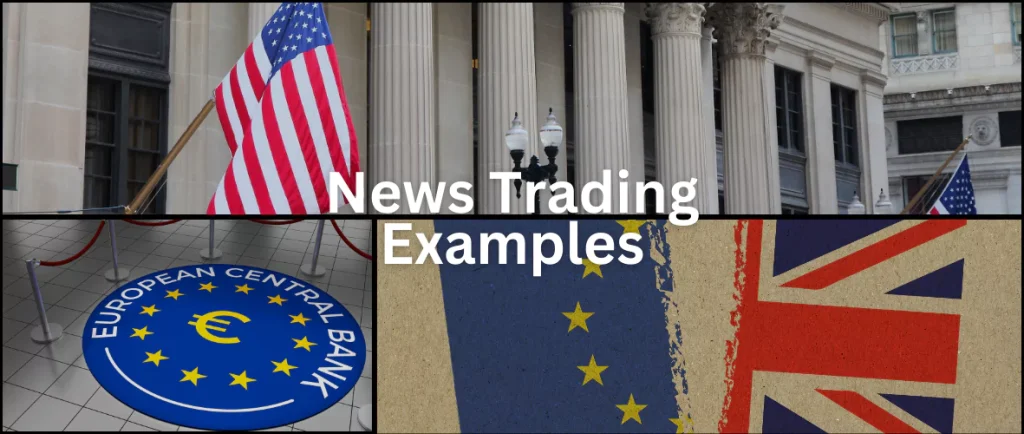
Brexit
The 2016 Brexit vote caused massive market disruptions. Forex traders who anticipated a negative outcome for the British pound positioned themselves accordingly, reaping significant profits as the pound plummeted post-vote. This case study illustrates the potential rewards of staying informed and reacting swiftly to political news.
U.S. Non-Farm Payroll
Non-farm payroll reports often cause sharp Forex market reactions. For instance, a stronger-than-expected report can boost the U.S. dollar, leading to profitable trading opportunities for those who are prepared. This regular release provides consistent opportunities for news traders to profit.
European Central Bank Announcements
Announcements by the ECB regarding interest rates or monetary policy can lead to substantial market movements. Traders who follow these updates closely can profit from the resulting volatility. For instance, a surprise rate cut could lead to a depreciation of the euro, providing trading opportunities.
Federal Reserve Meetings
Fed meetings are pivotal. Decisions on interest rates and economic outlooks can drive market trends. By analyzing Fed statements, traders can make informed decisions, positioning themselves advantageously. A statement indicating a future interest rate hike could strengthen the dollar, offering a clear trading signal.
Risk Management in News Trading
Setting Stop-Loss Orders
Stop-loss orders are essential to manage risk. They help limit losses if the market moves against your position. Implementing and adjusting stop-loss orders based on market conditions is crucial. For example, setting a stop-loss order slightly below a key support level can help protect against large losses.
Managing Leverage
Leverage can amplify gains and losses. Using leverage wisely is vital. Overextending can lead to significant losses, so balance your potential gains and risks. For instance, using lower leverage during high volatility periods can help manage risk effectively.
Diversification
Spreading risk across different trades and assets helps mitigate losses. Diversifying ensures that a single adverse event doesn’t disproportionately impact your portfolio. For example, holding a mix of currency pairs and asset types can protect against unexpected market movements.
Common Mistakes to Avoid
Overtrading
Trading too frequently based on news can be detrimental. It’s essential to pick your battles wisely and avoid overtrading, which can erode profits and increase risk. Focus on high-quality setups rather than reacting to every piece of news.
Ignoring Risk Management
Failing to set stop-loss orders or manage leverage can lead to significant losses. Always prioritize risk management in your trading strategy. Implementing proper risk management techniques can help protect your capital in volatile markets.
Misinterpreting News
Understanding the context of news releases is critical. Misinterpreting news can lead to poor trading decisions. Always analyze the broader economic and political context. For example, understanding the long-term implications of a central bank’s policy shift can provide valuable insights for your trading strategy.
Advanced Techniques in News Trading
Algorithmic Trading
Utilizing algorithms for news trading can enhance efficiency. Automated systems can execute trades rapidly based on predefined criteria, maximizing opportunities. This technology allows traders to capitalize on fleeting opportunities without the need for constant manual monitoring.
Sentiment Analysis
Leveraging social media and news sentiment tools helps gauge the market mood. Sentiment analysis can provide insights into market trends and potential movements. For instance, tracking the sentiment around a significant economic event on social media can help predict market reactions.
Event-Driven Strategies
Focus on specific events like economic reports or political announcements. By honing in on particular news events, traders can develop targeted strategies to maximize gains. For example, creating a trading plan around central bank meetings or major geopolitical events can enhance your news trading approach.
Conclusion | How Does News Trading Work?
News trading is a dynamic and challenging approach that requires staying informed and reacting swiftly. Understanding economic indicators, managing risk, and learning from case studies are crucial steps to mastering this strategy. By integrating these elements into your trading approach, you can enhance your ability to capitalize on news events.
The key to successful news trading lies in preparation and practice. Stay updated on news events, refine your strategies, and always prioritize risk management. Happy trading, and may your news-driven trades be ever in your favor! Remember, the more.


